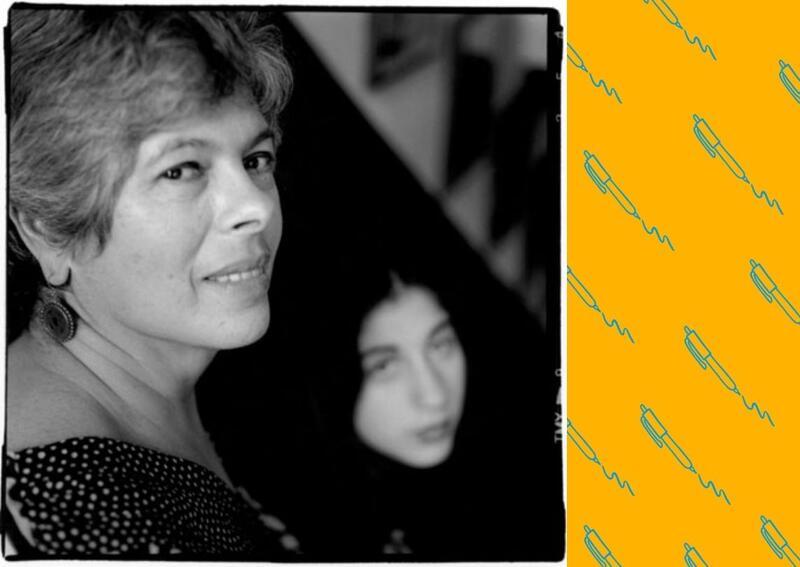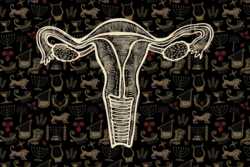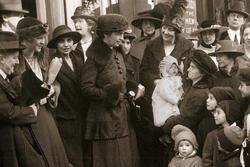Looking to Joyce Antler's Writing on Reproductive Rights
Frightened and alone, Texas residents are driving for hours through the night to get to Louisiana abortion clinics for consultations and subsequent procedures. Advocacy groups—facing criminal sanctions if caught—are booking hotel rooms to avoid travelers having to sleep in their cars. In October, one news agency reported that a mother traveled seven hours with her thirteen-year-old daughter who’d been sexually assaulted and impregnated so that she could obtain an abortion. Texas’s six week abortion ban, which amounts to a nearly total ban on abortion, has been in effect since September 1, 2021. Once a heartbeat is detected in a fetus, Texans cannot get an abortion—there are no exceptions for rape or incest. The Supreme Court declined to take action to block this bill, the most restrictive abortion ban in United States history. This is a precarious time for Roe v. Wade and its protection of choice-based health care. The onslaught of legislative efforts to limit abortion rights made this year’s Women’s March for Reproductive Rights, held on October 2, 2021, more urgent than ever. Diverse, multi-generational protesters rallied and marched to express their support for Roe v. Wade in 650 locations in all 50 states. As the next generation of feminists, we must continue to fight this wave of backlash against reproductive rights. But, in addition to protests, how can we most effectively speak out? I’ve found solace and inspiration by turning to our feminist foremothers who championed the first movements for women’s health care. In particular, Jewish feminist Joyce Antler’s work on the forefront of abortion rights activism has served as a guiding compass in my own feminist journey.
Joyce Antler is a nationally recognized women’s historian who had a long career working as a professor of American Jewish History and Culture and as a prize-winning author of dozens of books. Antler was a key conduit in repealing the law criminalizing abortion in New York. As a contemporary feminist addressing urgent political roadblocks such as SB8, I’ve been thinking a lot about Antler’s work to repeal New York’s abortion law. One of her tactics included compiling statistics on the abortion-related mortality rate in New York, which she then included in the fierce letter she wrote to the mayor at the time. As we work to repeal SB8, contemporary activists should model our work after Antler’s and collect statistical records on the emotional and financial burden this new law places on people seeking abortions.
In addition to changing lives by fighting for people’s rights to their bodies, Antler also devoted herself to empowering women in her documentation of previously unrecognized efforts by Jewish female activists. I’m particularly inspired by Antler’s book, Jewish Radical Feminism: Voices from the Women’s Liberation Movement, published in 2018. Antler chronicles the struggles, victories, and failures of 50 Jewish feminists from history, and it’s an invaluable tool for me to utilize in my own activism. In this book, Antler reflects on which strategies worked and which failed, and how each woman connected to her Judaism—providing a roadmap of sorts for the next generations of Jewish feminists. Through Antler’s writing, I can clearly envision the work of my foremothers and can continue to follow in their footsteps.
Paired with her feminist focus, Antler’s Jewish perspective guides me in my activism, where I seek to incorporate both my Jewish and my feminist values. As Antler explores each activist’s connection to Judaism in her book, she explains: “Unique to each woman, the conundrums of Jewishness suggest a wide range of responses that interact with feminist consciousness in distinct and varied ways.” As Antler suggests, Judaism encourages independent thinking, and Jewish activists come from varying places of observance—a reminder that my Jewish identity, confusing as it may be sometimes, is fundamentally intertwined with my activism. Antler’s efforts push me, as well as all other young Jewish activists, to thoughtfully consider the intersections between our religion and our activist work. And even beyond that, Antler’s writings on those 50 Jewish feminists has inspired me to keep my own log of contemporary and future feminists. This log serves as constant inspiration and motivation in my activist journey, even at seemingly hopeless moments like these.
In addition to speaking up and protesting, I’ve been trying to follow in Antler’s footsteps by watching, reading, and digesting any article or opinion piece drafted on the current legal battle against the Texas Heartbeat Act. Antler’s tireless, dedicated work serves as a reminder that I must persevere in my efforts to act against the injustices in Texas. As I continue to educate myself and build my log of activists, I can only hope that decades from now, my own work will help new, younger activists. As I try on the roles of organizer, educator, provider, and historian, I know it’s now my turn to leave the world a better place, and I’m glad I have Joyce Antler’s legacy to help guide my path.
This piece was written as part of JWA’s Rising Voices Fellowship.








There IS HOPE for the future when I read articles by amazing young people!
Thank you, Amanda!!!!
As a friend and colleague of Joyce Antler, it is sometimes easy for me to forget the enormous impact her writing and activism has had. Your eloquent tribute has summarized her exceptional work extremely well. There is no doubt that you will continue to carry it on, thereby honoring her achievements.